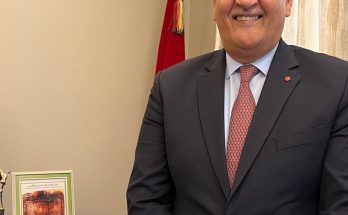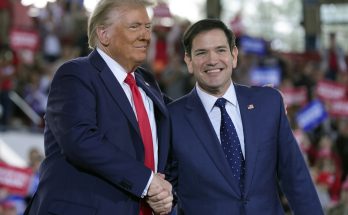
Under its year-long G20 presidency, India will be holding over 200 meetings across the country, literally from Kashmir to Kanyakumari. These meetings will bring tens of thousands of international delegates to the country for the next 12 months. Behind the media headlines and glitz, Mr Muktesh Pardeshi, the Officer on Special Duty(OSD), and the team at the G20 Secretariat, will be working quietly to ensure all these meetings take place, without a glitch. In this wide-ranging conversation with India and the World, Mr Pardeshi explains how the G20 secretariat is working literally 24×7 to translate PM’s vision of “People’s G20” by involving ordinary people in G20-related meetings.
Q) More than 200 G20-related events will be held across India in the next few months. As OSD coordinating preparations and logistics, how do you organise such these meetings? What Standard Operating Procedure do you follow?
A) This is a mega diplomatic event India is hosting. We are holding the G20 presidency for the first time in our history. The approach of the government is to not only further substantive agenda of the G20, but to also showcase the strengths and potential of India as a tourist and a business destination. A lot of careful thought and planning goes into organising these meetings all over India. No other G20 presidency has done G20 meetings on this scale. This is because India is a large country geographically. We have around 1.4 billion population. We have more than 30 regional states and union territories. So, that gives us geographical and civilisational depth to showcase India to the world.
This meeting is taking place in the backdrop of the post-pandemic economic recovery. This is also taking place at a time when India is emerging as the world’s fastest growing major economy. The world is watching India and India’s G20 presidency closely.
There are two aspects when we look at the G20 presidency. One is what we call the substantive agenda. Because we are inheriting the presidency from Indonesia and there is a troika comprising past presidency, current presidency and the future presidency. This Troika consists of Indonesia, India and Brazil. So, there is a consultative mechanism. They discuss the agenda of the working group and take it forward.
In this case, since India is hosting the presidency, so all the operational and organizational part is the responsibility of the Government of India. Hence, the G20 presidency in 2023 is a unique responsibility for us. We have not done this kind of mega event in recent years. India had hosted NAM and CHOGM meetings, but they were done decades ago and the scale was nowhere compared to what we have today. G20 represents 20 leading economies of the world, whether in terms of population or trade volume, this group is very important. So, we are taking advantage of hosting of the G20. Summit and meetings to showcase the strength and potential of India.
Organisationally. it’s also a very complex operation. We have more than 50 locations covering all states and Union Territories. That itself poses enormous infrastructural and organisational challenges before us. We have to locate suitable venues, we have to look at security aspects, we have to look at infrastructural issues such as medical facilities, road connectivity, airport connectivity, and what that particular venue has to offer to a foreign audience in terms of cultural and touristic interest. So, my team is responsible from the hospitality to security to website management to providing all technical support to 200- plus G20 meetings.
Q) What is the role of the state government and district administration in organising these meetings?
The role of states comes from the fact that the meetings are spread all over India. India is a federal union; we have to depend on states for many things, for instance, security, medical support, and local infrastructure. Without the close involvement of the states, we cannot organise these events. So we are reaching out to states for providing venues, providing security support, providing resources and manpower for showcasing the culture and tourism potential of the states. We are also closely linked with the states, if there are any regional interests of foreign delegation, this is the time and opportunity to showcase that.
Q) In the first meetings under India’s G20 presidency held in Udaipur, Mumbai, Bengaluru, delegates were taken for sightseeing on the last day of the meeting. What was the response of foreign delegates?
A) Very good. For last two years because of COVID-19, tourism and touristic flow had gone down. So, this is the time to revive people’s interest in exploring new places. Since our meetings are happening in a physical mode, we are looking forward to welcoming foreign delegates and taking them to places which are not often on foreign tourists’ radar. People have been covering the so-called Golden Triangle – Delhi, Agra, Rajasthan, but this time these meetings are happening all over India. Delegates coming for these meetings will get exposed to new places.
For the first time so many international meetings will be happening in Northeast states. Some of these states have not received many foreign delegates, so they will get a unique opportunity to project themselves in touristic terms.
Q) Prime Minister Modi has spoken about G20 in terms of “People’s G20,” “Jan Bhagidari”, a partnership with people. When you organise these meetings, how do you involve ordinary people in the G20 process?
A) The first is at the institutional level, G20 has a mechanism of engagement groups. So, some 10-plus engagement groups are constituted, covering an entire range of civil society issues. You have engagement groups covering business, women empowerment, civil society, youth, start-ups and so on. This is part of the institutional G20 framework. But we are going beyond that.
We are taking G20 to people, first, by taking it to all over India. That itself is a very crucial step forward. Secondly, we are involving universities. On December 1, our Honourable External Affairs Minister launched the University Connect programme. In the first phase, we have taken up 75 universities to spread the message of G20 amongst the university students.
We are also connecting to different regions by engaging through festivals. For instance, we were part of co-branding exercise in “Hornbill Festival” in Nagaland, Sangai festival in Manipur, we are going to participate in the Kite festival in Gujarat. Recently, I had a video conference with all the cultural functionaries of G20 countries. We are going to have a food festival in Delhi, half marathon in Delhi and a flower show representing flowers of G20 and other invitee countries will also take place in Delhi. Apart from this, we are co-branding the Khajuraho Dance Festival. We are reaching out to different segments of society. This focus has come from the Prime Minister himself to take the G20 to students, especially the youth.
We have been conducting training programmes for taxi drivers. We have conducted training programmes for police officers and liaison officers. We have roped in students and interns from the hospitality institutes. So by doing all this, we are going to the grassroot level. The whole idea is after we have conducted G20 meetings over the next one year, we should have created capacity in the country, so whenever opportunity like this comes to India, we are well prepared.
Q) What benefits G20 meetings bring to common man?
Diplomacy brings many benefits to India. The presidency of any prestigious grouping like G20 gives India sufficient global, political and diplomatic clout. We are not only on the high table, we are presiding over that high table. So India gets a rare opportunity to shape international priorities and narrative. And the benefits will come in due course to the people of the country.
Secondly, this is a golden opportunity to showcase strengths of our economy, which will finally benefit in terms of business linkages and investment opportunities.
Thirdly, these meetings will boost people-to-people contacts. When people and delegates from these countries come, they see the strength of our democracy. India is not only the largest democracy, it is the mother of democracy. So when people come and see for themselves how democracy is thriving in a country populated by 1.4 billion people, they go back with tremendous level of satisfaction and confidence in the future of a Rising India. This brings benefits to country, including at the grassroot level
Author Profile
- India Writes Network (www.indiawrites.org) is an emerging think tank and a media-publishing company focused on international affairs & the India Story. Centre for Global India Insights is the research arm of India Writes Network. To subscribe to India and the World, write to editor@indiawrites.org. A venture of TGII Media Private Limited, a leading media, publishing and consultancy company, IWN has carved a niche for balanced and exhaustive reporting and analysis of international affairs. Eminent personalities, politicians, diplomats, authors, strategy gurus and news-makers have contributed to India Writes Network, as also “India and the World,” a magazine focused on global affairs.
Latest entries
 India and the WorldJune 26, 2025Operation Sindoor: India Sheds Restraint, Rediscovers Utility of Force
India and the WorldJune 26, 2025Operation Sindoor: India Sheds Restraint, Rediscovers Utility of Force India and the WorldJune 23, 2025BRICS summit in Rio to focus on Global South, local currency trade
India and the WorldJune 23, 2025BRICS summit in Rio to focus on Global South, local currency trade Africa InsightsJune 11, 2025New Opportunities in India-Japan Cooperation in Africa
Africa InsightsJune 11, 2025New Opportunities in India-Japan Cooperation in Africa India and the WorldMay 23, 2025Post-Operation Sindoor, India reminds Turkey, China of concerns and sensitivities
India and the WorldMay 23, 2025Post-Operation Sindoor, India reminds Turkey, China of concerns and sensitivities







